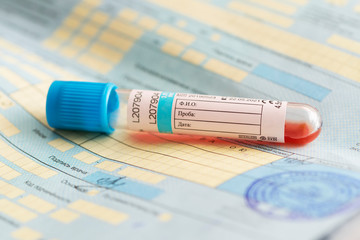The hospital ecosystem is filled with various medical designations and abbreviations, and for patients or even aspiring healthcare professionals, these terms can often be confusing. One such term frequently encountered in Indian hospitals is RMO. If you’ve ever asked, “What is the Full Form Of RMO In Hospital?” — you’re not alone.
Understanding this designation is crucial, especially if you’re entering the healthcare field or seeking care in a hospital setting. In this article, we’ll explain the Full Form Of RMO In Hospital, their responsibilities, qualifications, and how they differ from other medical roles.
What Is The Full Form Of RMO In Hospital?
The Full Form Of RMO In Hospital is Resident Medical Officer.
An RMO is a licensed medical practitioner who is stationed at the hospital and is responsible for monitoring patient care, especially in inpatient wards, ICUs, and emergency departments. RMOs play a vital role in bridging the gap between senior consultants and the nursing staff, ensuring smooth medical operations around the clock.
Key Responsibilities Of A Resident Medical Officer (RMO)
Now that we know the Full Form Of RMO In Hospital, it’s important to understand what exactly an RMO does on a daily basis. Their responsibilities typically include:
- Monitoring patient condition and responding to emergencies
- Performing preliminary diagnosis and coordinating with specialists
- Managing patient admissions, discharges, and medical documentation
- Supervising medication administration and treatment plans
- Assisting in minor medical procedures
- Coordinating with nursing and support staff to ensure quality patient care
RMOs are essential in both emergency situations and routine hospital care, providing 24/7 medical coverage in many institutions.
Where Are RMOs Usually Found?
RMOs are commonly found in:
- Multispeciality hospitals
- Private nursing homes
- Government hospitals
- Emergency care units
- ICUs and CCUs (Intensive and Critical Care Units)
- Post-surgical recovery wards
They are integral in situations where patients require continuous monitoring and immediate medical response. This is why hospitals ensure RMOs are present during all shifts, especially night hours.
Qualifications Required To Become An RMO
Understanding the Full Form Of RMO In Hospital is one thing, but knowing how to become one is equally important for medical aspirants.
Basic qualifications include:
- MBBS degree from a recognized medical college
- Valid registration with the Medical Council of India (MCI) or State Medical Council
- Internship completion and basic clinical exposure
Some hospitals may also require certifications in Basic Life Support (BLS) or Advanced Cardiac Life Support (ACLS), especially for roles in emergency care or ICUs.
Skills That Make A Successful RMO
Aside from academic qualifications, the following skills are essential for success in this role:
- Quick decision-making in critical situations
- Strong communication and teamwork abilities
- Accurate medical documentation
- Empathy and patient-focused care
- Time management under pressure
Because RMOs are often the first point of contact in emergencies, they need to be calm, confident, and competent.
Difference Between RMO And Other Medical Roles
It’s easy to confuse an RMO with other doctors in the hospital. Here’s how they differ:
| Role | Description |
| RMO | Resident Medical Officer: Stationed at the hospital 24/7 for routine care and emergencies. |
| MO (Medical Officer) | General practitioners or public health doctors, often in government settings. |
| Consultant | Senior doctors with a specialization; they make major decisions and supervise RMOs. |
| House Surgeon | Interns undergoing training, typically under the guidance of RMOs and consultants. |
So while the Full Form Of RMO In Hospital is “Resident Medical Officer,” the title reflects both their medical responsibility and continuous physical presence at the hospital.
Career Growth And Opportunities
RMOs often use the position as a stepping stone in their medical career. It provides real-world experience in handling patients, coordinating with senior doctors, and responding to emergencies. Many RMOs go on to specialize further by pursuing postgraduate degrees (MD/MS or DNB) in various disciplines.

Additionally, private hospitals and healthcare groups frequently post Resident Medical Officer openings on job platforms such as ElevatedSynergyIndia, which specializes in healthcare recruitment.
If you’re looking for opportunities in this field, regularly checking ElevatedSynergyIndia can help you find verified Consultant and RMO job postings across India.
Salary Expectations
Salaries for RMOs in India vary based on experience, location, and type of hospital. On average:
- Freshers (0–2 years): ₹30,000–₹50,000/month
- 2–5 years experience: ₹50,000–₹70,000/month
- Senior RMOs (5+ years): ₹70,000–₹1,00,000/month or more
Hospitals in metro cities and corporate chains usually offer higher pay packages.
Final Thoughts
Understanding the Full Form Of RMO In Hospital — Resident Medical Officer — opens the door to understanding a critical role within the hospital framework. RMOs are the backbone of continuous patient care, especially in departments that require round-the-clock supervision.
Whether you’re a medical graduate looking to start your career or a patient wanting to understand who is caring for you in the hospital, knowing the Full Form Of RMO In Hospital and what it entails is essential.
With rising demand for skilled RMOs in both government and private sectors, this role promises a stable and enriching career path in medicine. Keep an eye on trusted platforms like Elevated Synergy India to explore the latest openings and begin your journey in hospital-based medicine.